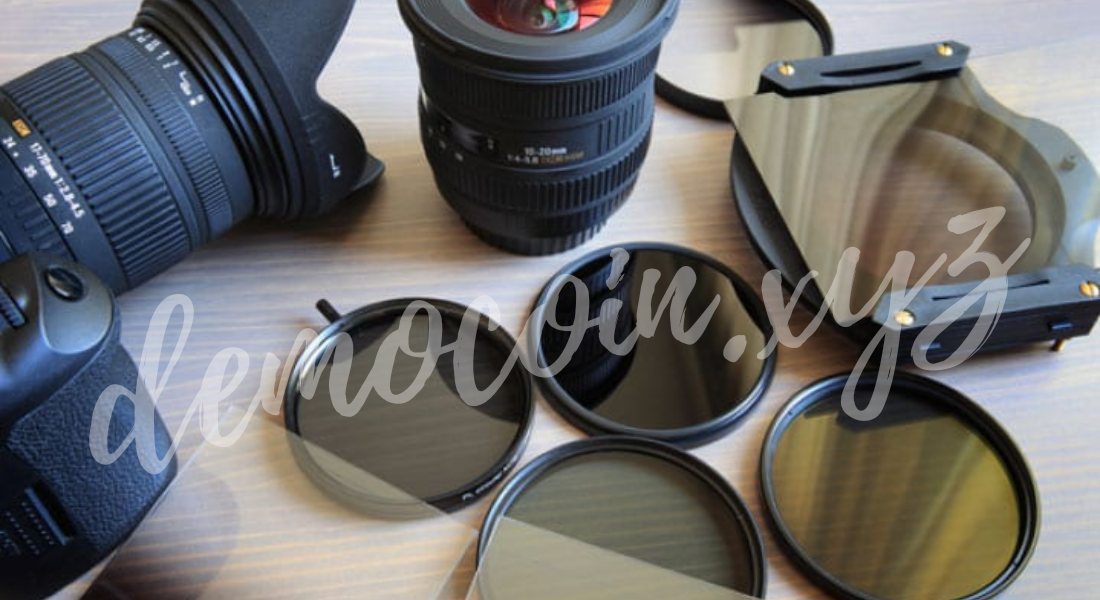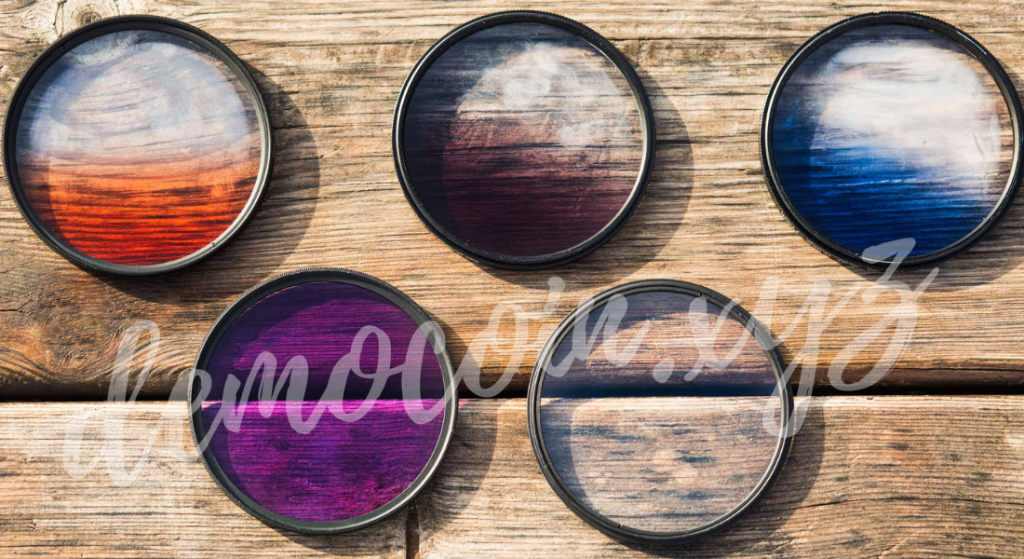Blog
The Ultimate Lens Filters Guide: Everything You Need to Know
Introduction:
When it comes to photography, the right lens filters can elevate your images, enhancing color, contrast, and overall image quality. Whether you’re a beginner or a seasoned photographer, understanding lens filters and their uses is crucial for getting the most out of your camera gear. This Lens Filters Guide will explore the different types of filters available, their benefits, and how to select the best one for your needs. By the end of this guide, you’ll have the knowledge to make informed decisions about using lens filters for a variety of photographic scenarios.
What Are Lens Filters Guide?
Lens filters are specialized optical accessories that are mounted on your camera lens. These filters can alter the light entering your camera, allowing you to achieve specific effects or protect your lens from damage. Filters can be screw-on types, which attach directly to the lens threads, or larger filters that require a filter holder.
The Lens Filters Guide will help you navigate the many different types, ensuring you understand each one’s specific purpose. With the right filter, you can dramatically enhance your photography, whether you’re shooting landscapes, portraits, or city scenes.
Types of Lens Filters
There are several types of lens filters, each designed for specific effects or uses. Below are some of the most common filters you’ll come across in photography.
1. UV Filters (Ultraviolet Filters)
UV filters are one of the most popular lens filters, especially for outdoor photographers. Traditionally, these filters were used to block ultraviolet light from reaching the camera sensor, which could cause haziness or unwanted color shifts in photographs. While modern camera sensors have built-in UV protection, UV filters are still widely used for lens protection. A UV filter can help shield your lens from dust, scratches, and moisture without affecting your image quality.
2. Polarizing Filters
A polarizing filter, or CPL (Circular Polarizer), is one of the most versatile filters. It reduces glare from reflective surfaces like water, glass, or wet streets, helping you capture more vibrant, detailed images. It also enhances the colors in a scene, making skies appear bluer and foliage greener. In landscape photography, a polarizing filter is often a must-have for achieving stunning results.
3. Neutral Density (ND) Filters
Neutral Density filters reduce the amount of light entering your lens without affecting the color balance. ND filters are often used in bright environments to prevent overexposure or to create longer exposure times in daylight for artistic effects, such as motion blur in waterfalls or cloud movement. There are different strengths of ND filters, ranging from light to heavy, allowing you to control the exposure time according to the scene.
4. Graduated Neutral Density (GND) Filters
Graduated ND filters are similar to regular ND filters, but with a gradual transition from dark to clear. These filters are perfect for scenes with a wide exposure range, such as landscapes with bright skies and darker foregrounds. By using a graduated ND filter, you can balance the exposure between the sky and ground, preventing overexposure of the sky or underexposure of the landscape.
5. Color Filters
Color filters are used in black and white photography to enhance contrast and add mood to the image. These filters can change the tonal relationships in your photo, helping certain colors stand out more than others. For example, a red filter can darken skies, while a yellow filter may brighten clouds. Color filters are particularly useful for enhancing the drama in black-and-white images.
6. Close-up Filters
Close-up filters allow you to take macro-style shots without the need for a specialized macro lens. These filters are essentially magnifying lenses that screw onto the front of your lens, enabling you to focus on subjects closer than your lens’s minimum focusing distance. If you want to capture detailed shots of small objects like insects or flowers, a close-up filter is an affordable alternative to a dedicated macro lens.
7. Warming and Cooling Filters
Warming filters add a subtle yellow or orange tint to your images, making them feel warmer. These are ideal for portraits, sunsets, or golden-hour photography. Conversely, cooling filters add a blue tone to your images, which can be useful for cold, snowy scenes or when you want to create a more dramatic atmosphere. Warming and cooling filters are available in different strengths and can be used creatively to modify the mood of your photographs.
How to Choose the Right Lens Filter
When it comes to choosing the best filter for your photography, there are several factors to consider:
1. Understand Your Photography Style
Your choice of filter depends largely on your photography style and what you want to achieve. If you’re a landscape photographer, for example, a polarizing filter and ND filter can be incredibly beneficial for reducing glare and controlling exposure in bright conditions. If you focus on portraits, a UV filter or warming filter may be more appropriate.
2. Check Compatibility with Your Lens
Make sure the filter you choose is compatible with your lens size. Lens filters are typically measured by their diameter in millimeters, which corresponds to the size of the filter thread on your lens. Filters come in a wide range of sizes, so it’s essential to know your lens size before purchasing.
3. Quality Matters
When it comes to lens filters, quality matters. Low-quality filters can degrade the sharpness and clarity of your images, causing unwanted color shifts, vignetting, or a loss of detail. Always opt for filters from reputable brands like B+W, Hoya, or Tiffen to ensure superior image quality.
4. Think About Convenience
If you frequently shoot in changing conditions, it may be beneficial to invest in multi-functional filters. For example, a variable ND filter can be adjusted to different levels of light reduction, eliminating the need to carry multiple ND filters for various lighting conditions.

Benefits of Using Lens Filters
The right lens filter can offer several benefits to photographers:
- Improved image quality: Filters like polarizers and ND filters can enhance the clarity, color, and contrast of your images.
- Protection for your lens: A UV or clear filter helps protect your lens from dust, scratches, and environmental damage.
- Creative effects: Filters like color or graduated ND filters can help you achieve specific artistic effects that are difficult to replicate in post-processing.
How to Use Lens Filters
Using a lens filter is simple. Most filters screw directly onto the front of your lens, although some larger filters may require a holder system. When using a filter, make sure to adjust your camera settings accordingly. For example, when using an ND filter, you may need to increase your exposure time or adjust your aperture to compensate for the reduced light.
It’s also essential to keep your filters clean. Dust and fingerprints can impact the quality of your images, so be sure to use a lens cloth or a filter cleaning solution to keep them in top condition.
Conclusion
In this Lens Filters Guide, we’ve covered everything from the types of filters to the benefits of using them in your photography. By understanding the various filters available and how they can enhance your photos, you’ll be able to make more informed decisions about your gear. Whether you’re looking to protect your lens, improve image quality, or experiment with creative effects, the right lens filter can make all the difference.
Now that you have a deeper understanding of lens filters, it’s time to experiment and find the ones that work best for your style of photography. So, grab your camera and start exploring the world of filters today!

